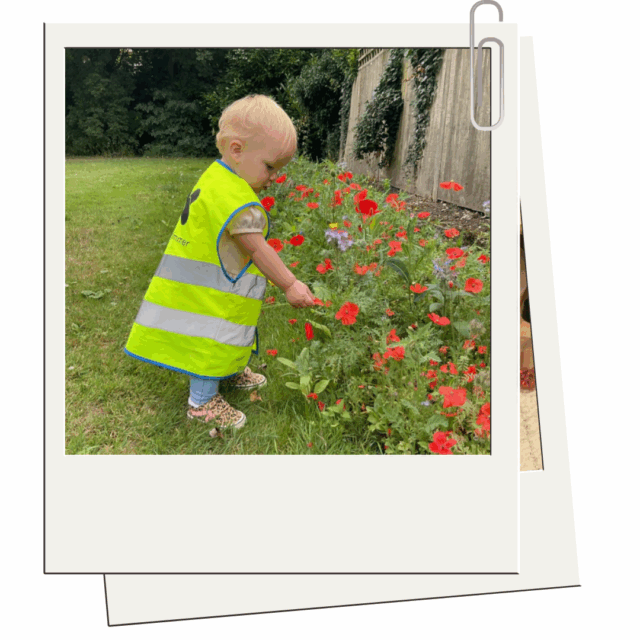The Power of Positive Discipline: How to Set Boundaries with Love, Gentle discipline strategies
15/09/25 Knowledge Base ParentingThe Power of Positive Discipline: How to Set Boundaries with Love, Gentle discipline strategies
Disciplining young children can be challenging, but it’s an essential part of their emotional and social development. As parents, we often struggle to find a balance between setting clear boundaries and maintaining a loving, nurturing environment. At kinderzimmer, we embrace positive discipline as a guiding principle, focusing on teaching children respect, responsibility, and self-control through compassionate methods.
In this blog, we’ll explore the importance of positive discipline, gentle strategies for setting boundaries with love, and how you can create a respectful, supportive environment at home that aligns with holistic educational approaches like Montessori, Steiner, and Froebel.

1. What Is Positive Discipline?
Positive discipline is an approach to guiding children’s behaviour that is grounded in kindness, respect, and empathy. It focuses on teaching children the reasons behind rules and expectations, helping them understand the consequences of their actions while promoting self-regulation. Unlike traditional punishment-based approaches, positive discipline emphasises teaching children how to make better choices and behave appropriately through guidance, rather than fear or shame.
By setting clear, consistent boundaries and offering loving support, positive discipline helps children develop important emotional skills, such as empathy, patience, and self-control. At kinderzimmer, we incorporate this philosophy into our everyday practices, teaching children how to express their feelings, solve problems, and collaborate with others.
2. The Importance of Setting Boundaries with Love
Setting boundaries is a crucial aspect of positive discipline, as it provides children with the structure they need to feel safe, secure, and loved. Boundaries teach children about respect for themselves and others, and help them develop important life skills. When boundaries are set with love and understanding, children are more likely to follow them, as they feel valued and heard in the process.
At kinderzimmer, we believe that discipline is not about controlling children, but about guiding them to understand the impact of their actions. Children who know what is expected of them and who feel supported in their choices are more likely to develop self-confidence and emotional resilience.

3. Gentle Discipline Strategies for Setting Boundaries
Setting boundaries with love doesn’t mean being permissive or inconsistent. It’s about finding gentle, effective ways to guide your child’s behaviour without resorting to harsh punishment. Here are some positive discipline strategies that can help you set clear boundaries while fostering a loving relationship:
Be consistent: Children thrive on routine and predictability. When boundaries are consistently applied, children know what to expect and feel more secure. Make sure to follow through with consequences when necessary, but always in a gentle, non-punitive way.
Use positive reinforcement: Reinforce good behaviour with praise and encouragement. Acknowledge your child’s efforts when they follow boundaries and make positive choices. This reinforces their behaviour and boosts their self-esteem.
Offer choices: Giving children choices empowers them to take responsibility for their actions. For example, if your child is resisting getting dressed, offer them two outfits to choose from. By offering control in small areas, you are helping your child feel more independent and confident while still maintaining clear boundaries.
Use time-ins instead of time-outs: Instead of sending your child to a separate space for a time-out, consider using a time-in approach. This involves sitting with your child and helping them calm down by talking through their emotions. This approach fosters connection and encourages emotional regulation, rather than isolation.
Stay calm and composed: Children often mirror the emotions of the adults around them. By staying calm, even during challenging moments, you help your child stay regulated and teach them how to manage their emotions. Remember to model the behaviour you want to see in your child.
Set clear expectations and follow-through: Be clear and specific about what you expect from your child, and make sure to explain the reasons behind the boundaries. For example, if your child needs to stop playing and clean up, explain why it’s important to keep their environment tidy. Setting expectations ahead of time helps avoid confusion and ensures that your child understands the importance of the boundary.
4. How to Foster Emotional Intelligence with Positive Discipline
One of the key benefits of positive discipline is that it helps children develop emotional intelligence. Emotional intelligence involves the ability to identify, understand, and manage emotions, both in oneself and in others. It’s a critical life skill that influences relationships, decision-making, and overall well-being.
When boundaries are set with love and respect, children feel safe to express their emotions without fear of punishment. This open communication fosters emotional intelligence, as children learn to recognise their feelings and understand how to manage them. They also learn how to express their feelings in appropriate ways, such as using words instead of acting out.
At kinderzimmer, we use positive discipline to help children understand the value of empathy, cooperation, and self-awareness. By fostering emotional intelligence from a young age, children are better equipped to handle challenges in social and academic settings.
5. Holistic Approaches to Positive Discipline
The principles of positive discipline align closely with the educational philosophies of Montessori, Steiner, and Froebel. These approaches place a strong emphasis on creating environments that nurture the whole child – their emotional, intellectual, and physical development.
Montessori: The Montessori method encourages children to take responsibility for their own actions. It promotes independence, respect, and self-discipline. In a Montessori environment, children are encouraged to make choices within a structured setting, which naturally supports the development of positive behaviour.
Steiner: In the Steiner approach, the emotional and social needs of the child are integrated with the academic curriculum. Positive discipline in a Steiner setting focuses on the holistic development of the child, creating a safe and nurturing environment that allows children to express themselves while respecting the needs of others.
Froebel: Froebel education is rooted in play and encourages self-regulation through guided interactions. Positive discipline in the Froebel approach is about guiding children to make thoughtful decisions and to respect the boundaries of others. This approach emphasises the role of play in social learning, with children being gently guided towards self-discipline through their interactions with peers.

6. The Role of Parents in Positive Discipline
As parents, you are your child’s first role model. Your actions and behaviour directly influence how your child views discipline, boundaries, and relationships. By practising positive discipline at home, you are reinforcing the same values and behaviours that your child experiences at kinderzimmer. Here are a few ways you can apply positive discipline at home:
Model respectful behaviour: Children learn by observing their parents. By modelling respectful communication, problem-solving, and emotional regulation, you teach your child how to handle difficult situations with kindness and self-control.
Collaborate with your child’s nursery: At kinderzimmer, we work closely with parents to ensure that discipline strategies are consistent at home and in the nursery. Having open communication with your child’s teachers and caregivers can help reinforce positive behaviour and create a seamless approach to discipline.
Stay patient and consistent: Positive discipline requires time and consistency. Be patient with your child and continue to set clear, loving boundaries. Over time, your child will internalise these lessons and begin to understand the importance of respecting themselves and others.
Setting Boundaries with Love
Positive discipline is a powerful tool that helps children learn about respect, responsibility, and self-regulation in a loving, supportive environment. By setting boundaries with kindness, consistency, and understanding, you are helping your child develop the emotional intelligence and life skills they need to thrive.
At kinderzimmer, we believe in the power of positive discipline to create a safe, nurturing environment where children can grow, learn, and build strong relationships with others. By incorporating gentle discipline strategies into your home and daily routine, you are setting the foundation for your child’s long-term success and well-being.
If you have any questions or would like more tips on positive discipline, don’t hesitate to reach out to us. We’re here to support you and your family on your journey to raising happy, healthy, and well-rounded children!












